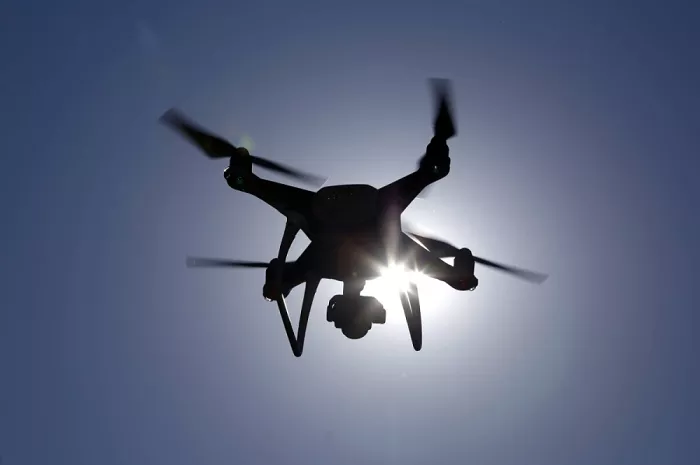U.K. government officials have privately expressed concern about Chinese-made drones being used to capture high-resolution images of key national infrastructure. This goes against advice from the country’s security agencies.
The drones, manufactured by Shenzhen-based SZ DJI Technology, are used by several major U.K. companies. National Grid PLC, which runs the country’s electricity and gas networks, uses DJI drones to photograph and inspect its substations. DJI drones have also been used at the Hinkley Point C nuclear power plant, at solar farms, and by Thames Water to monitor reservoirs and water systems.
This use of Chinese drones continues despite warnings from U.K. security agencies. In 2023, the National Protective Security Authority (NPSA), part of MI5, advised companies not to use drones from countries with aggressive data-sharing laws, such as China. In 2022, the U.S. Department of Defense placed DJI on a blacklist due to its ties with the Chinese military.
National Grid said it follows government guidance, while Thames Water emphasized its commitment to security. DJI and Electricité de France (EDF), which operates Hinkley Point C, did not respond to requests for comment.
“There is reason to be concerned about the widespread use of Chinese drones to monitor critical U.K. infrastructure,” said Sam Goodman of the China Strategic Risks Institute. He warned that unless British companies modify these drones — especially their software — the data collected could be shared with Chinese authorities, as required by China’s national security laws.
The issue comes amid broader scrutiny of China’s role in U.K. infrastructure. Just this week, the British government took control of British Steel from its Chinese owner to prevent the closure of vital steelmaking operations.
One U.K. official said the drone issue is especially complex. While the government wants stronger trade ties with China, it is also frustrated that companies operating in sensitive sectors are not treating the security risks seriously.
Prime Minister Keir Starmer continues to seek closer economic ties with Beijing, despite these concerns and amid rising tensions between China and Western countries. Last year, reports emerged that Chinese hackers may have successfully accessed parts of the U.K.’s critical infrastructure, fueling fears of foreign interference.
The U.S. Federal Bureau of Investigation (FBI) has also warned that Chinese-made drones pose a threat to critical systems. They say such drones could be used to steal data or hack into networks. The U.K.’s NPSA advises companies to avoid purchasing drones or parts from countries considered a security risk.
Chinese laws require companies like DJI to cooperate with the state and share data when requested. Still, many U.K. firms continue to use DJI products. DJI is the world’s largest commercial drone manufacturer, and its drones are often seen as the most cost-effective option available.
The National Grid’s website states that it uses various DJI models — including the Mavic2, M350, M300 RTK, and Mini 3 Pro — to support its “Great Grid Upgrade” project and other inspection tasks. A spokesperson said the company has security systems in place that follow government and agency guidance.
At Hinkley Point, DJI drones were used to collect “incredibly valuable, accurate data,” according to Skymatics, the company that surveyed the site. The nuclear plant is part-owned by China General Nuclear Power Group. Skymatics and EDF did not comment on the matter.
The U.K. government declined to speak on specific security cases but said its energy sector is “subject to the highest levels of scrutiny and protection.”
Thames Water added, “As providers of critical national infrastructure, we take the security of our networks and systems very seriously.”
Experts say some risks can be reduced by using drones offline and disconnected from the internet. However, the NPSA insists that the safest option is to block high-risk vendors from entering the supply chain in the first place.


